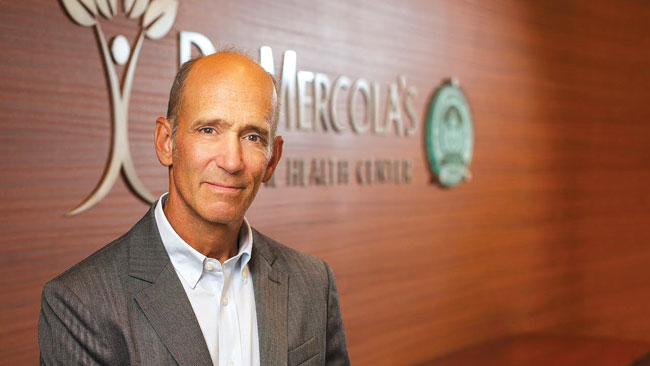
A lifestyle focus for COVID-19 and chronic health conditions
Many hard lessons are being learned as residents of the Bay Area manage life with the ongoing pandemic. For Latinos who have recovered from the COVID virus, and for many medical professionals, there is a stronger focus on the lifestyle fundamentals of health.
In California, there have been 1,029,235 cases of COVID to date*, 60 percent of which are Latinos, reports the California Public Health Department (CPHD).
The Golden State, however, is doing better than most other U.S. states, according to the CPHD, which reports that Alameda County has dropped a case level from “substantial” to “moderate” with a 1.6 percent positivity rate as compared to the state’s rate of 3.3 percent. Even with relatively low cases, California still adds several thousand cases a day and a fair number of deaths.
Since Latinos represent 48.6 percent of California’s Covid-related deaths, healthcare professionals agree managing one’s health is still key. Self-care can help with prevention, surviving the disease and treating a rather common post-COVID phenomenon called “long haulers.” These are former COVID patients experiencing various lingering symptoms weeks and even months after supposedly beating the disease. A British medical team estimates about ten percent of cases become long haulers. In July, the CDC said as many as 35 percent of those with mild cases had not returned to pre-COVID health two to three weeks later.
Life after COVID
When Charlotte Juarez, a 55-year-old former COVID patient, returned home after 14 traumatic days in a Bay Area hospital last June, she expected to quickly resume her normal life. Instead she was plagued with fatigue, headaches, loss of hair, brain fog, joint aches, insomnia, rashes, eye issues, stomach problems, issues with smell, shortness of breath and heart palpitations.
“I didn’t know what was happening,” said Juarez, “and apparently neither did my doctor, who two weeks later said he couldn’t tell me what kind of lung disease I would end up with.”
Not until she joined a group of other survivors did Juarez realize she was not alone. Fully aware that her pre-existing conditions of Type 2 Diabetes and high blood pressure couldn’t be helping, Juarez was determined to take her health into her own hands through improved diet, light exercise and positive thinking. Four months later, most symptoms have subsided.
Dr. Sara Gottfried, MD, is the three-time New York Times best-selling author of “The Hormone Cure and The Hormone Reset Diet,” “Younger,” and her latest book, “Brain Body Diet.”
“Since we know Latinos have a higher co-morbidity rate, it’s important to know how to promote your immune health and resistance against diabetes, obesity, high blood pressure and cardiovascular conditions,” says Dr. Gottfried.
Good health is your superpower to protect yourself against COVID and its possible long-term effects after recovery from infection.
Exercise your superpower
Dr. Gottfried recommends a plant-based diet, with a pound per day of colorful, fresh vegetables to add fiber, control bacteria in the gut and provide the micro-nutrients to control inflammation, chronic diseases and help regulate blood sugar.
Avoid processed food. “If it didn’t come out of or walk on the ground and isn’t recognizable as a plant or meat or fish, avoid it,” says Dr. Gottfried.
Dr. Joseph Mercola, doctor of Osteopathy and New York Times best-selling author, advocates intermittent fasting, where eating is done within a 6 to 9-hour window at least 3 hours before bed.
“Healthy, low carb eating during this window can target insulin resistance, which is the underlying factor in each of the chronic health conditions associated with severe COVID,” says Dr. Mercola.
Healthcare professionals agree, people must incorporate daily movement. “Being sedentary plays a significant role in chronic diseases,” says Dr. Mercola.
Dr. Gottfried recommends twenty to thirty minutes of exercise four days a week, including walking, and adding in some high intensity movement, which pulls sugar from your bloodstream, regulating insulin levels.
“People tend to overeat when they’re tired,” says Dr Gottfried. Poor quality of sleep wreaks burdens your internal biochemistry. The doctor recommends 7 to 8 hours of sleep, though the amount needed by an individual can vary.
Dr. Gottfried emphasizes a healthy diet including brain healthy choices such as olive oil, nuts and seeds to support your mood. “Your food shapes your brain.”
She also says that a growth mindset, gratitude and optimism help bolster resilience -- the process of adapting well to adversity, trauma, tragedy, threats or significant sources of stress, according to the American Psychological Association. “Resilience is possible for all as part of the normal arc of being confronted with difficulty like a pandemic,” says Dr. Gottfried. Everyone is equipped to develop it and every immune system can benefit.”
Naturally, people will develop their resilience in their own unique way. For Juarez, it’s making tamales.
“I’ve been making tamales for friends, family and the community for a couple months now and I can honestly say, this is my happy place,” says Juarez. Juarez says she and her husband, Oscar, who also had the virus, for the most part feel great these days having improved their health habits, eating better, drinking healthy smoothies and getting some exercise. Her fears and stress are mostly relieved by keeping busy with her thoroughly enjoyable hobby that helps her not focus on any lingering symptoms.
“While I’m eating more mindfully, occasionally I’ll have a tamal as a treat,” confesses Juarez with a giggle. “I said I was sick, not crazy.”
* As November 16, 2020.

